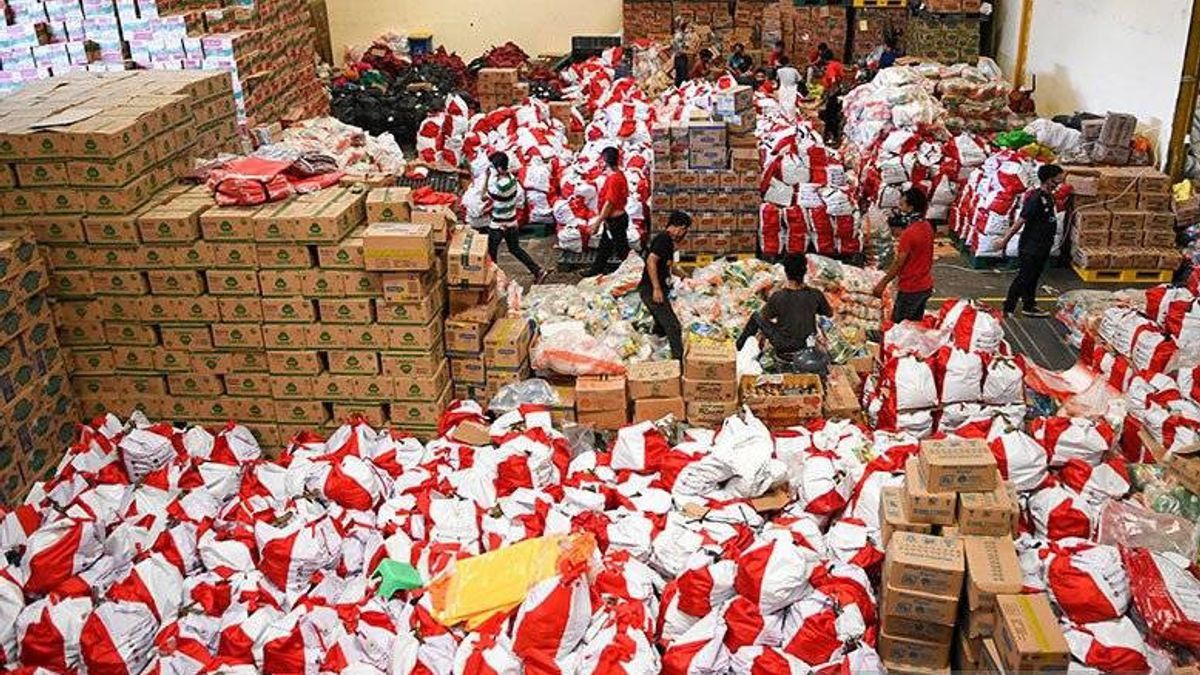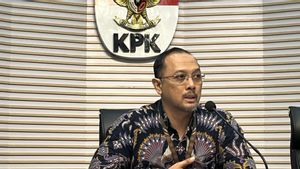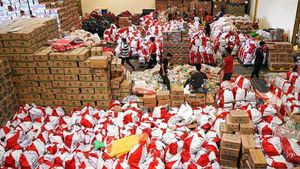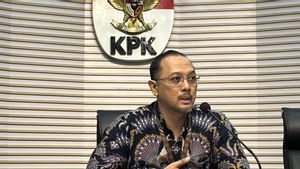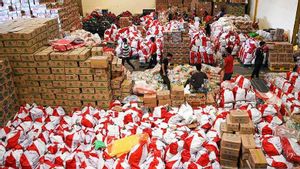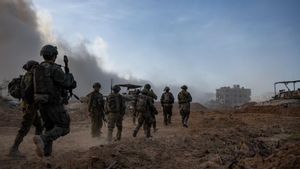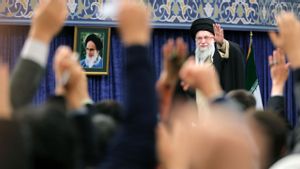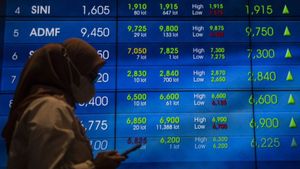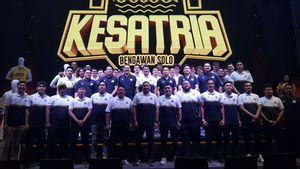JAKARTA - Commission VIII of the DPR highlighted the KPK's report regarding the corruption case of presidential assistance (Banpres) during the Covid-19 pandemic which reached Rp250 billion. The DPR said corruption could be prevented if it was distributed through non-cash assistance methods.
"This incident should not have happened if the government took steps to distribute social assistance in the form of non-cash assistance," said Member of Commission VIII DPR, Selly Andriany Change, Tuesday, July 8.
As is known, the state loss figure of Rp250 billion is not certain because the KPK is still calculating. The value of the Banpres project itself is Rp900 billion which is divided into 3 stages.
Banpres is included in the social assistance distribution program for overcoming the pandemic distributed by President Joko Widodo (Jokowi). Banpres is packaged in a goodie bag with a special design bag that reads 'Presidential Palace of the Republic of Indonesia' and 'Assistance of the President of the Republic of Indonesia, which includes food packages, including rice, biscuits, sugar, cooking oil, to teabags.
"From here we agree that corruption is an inhumane act, especially when the Covid-19 pandemic occurs," he said.
However, the government's efforts should also minimize the gaps in corrupt behavior in its presence. In a sense, preventing corruption is better than waiting for law enforcement officials to move," continued Selly.
For information, Banpres corruption was revealed in the indictment of the rice social assistance distribution case (BSB) at the Ministry of Social Affairs which dragged Ivo Wongkaren. BSB is aimed at 10 million Beneficiary Families (KPM) in the Family Hope Program (PKH) in 2020 to reduce the impact of the pandemic.
At almost the same time, the Ministry of Social Affairs is also implementing the Banpres program in the areas of Jakarta, Bogor, Depok, Tangerang, and Bekasi (Jabodetabek). Ivo, who is one of the suspects, was involved in the project and became one of the implementing vendors using PT Anomali Lumbung Artha (ALA).
SEE ALSO:
Selly assessed that if the Banpres was distributed using a non-cash method, it would increase the amount of assistance for people in need.
"So from the 10 million beneficiaries from the PKH sector who get assistance every three-thirds of the month, the nominal amount of assistance can be added in the context of handling Covid-19," said the former Deputy Regent of Cirebon.
To note, the Government has a Non-Cash Food Assistance (BPNT) program which is a cash assistance of Rp. 200 thousand. The aid must be exchanged for foodstuffs according to the mechanism applicable in the nearest e-warung.
Meanwhile, the Family Hope Program (PKH) assistance is a conditional cash assistance program provided to Beneficiary Families (KPM) with the aim of reducing poverty and improving the quality of life of the community. PKH social assistance is distributed in two ways, namely through the beneficiary's account or done through the post office.
Each PKH beneficiary will receive cash according to their category ranging from pregnant women, toddlers, elderly people, people with disabilities, school children from elementary to high school levels who are distributed in stages in 4 stages for 1 year. The amount also varies depending on the KPM category.
Selly regretted why the Banpres method was carried out by providing basic necessities. Whereas in 2018, the Government has initiated non-cash assistance with Himbara banks (State-Owned Banks Association) for the sake of regional economic turnover.
"But why during Covid-19, the government actually replaced him with food packages. For me this is an extraordinary setback," regretted Selly.
Not only that, the legislator from the West Java VIII electoral district assesses that the distribution of Banpres with rice is not appropriate because Indonesia is a nation that has food diversity. Selly gave an example, for example, in Papua, where daily food is in the form of sago, not rice.
"It's ironic that our social assistance still relies on Javanese-centric considering that our community's food needs are not only rice. Then the consideration of a wide distance with the ocean as a liaison is a difficult effort when social assistance in the form of this commodity is produced at only one point, namely Jakarta," he explained.
"The state needs massive mobilization to deliver goods from one point to another. Meanwhile, the community needs certainty of time so that social assistance is immediately realized. Especially during the previous Covid," added Selly.
Selly also said that the problem of corrupt social assistance is not the only chronic problem that harms the community.
"The distribution of social assistance in the form of rice makes people depend on rice, which has resulted in the poor sovereignty of our food today," he said.
The English, Chinese, Japanese, Arabic, and French versions are automatically generated by the AI. So there may still be inaccuracies in translating, please always see Indonesian as our main language. (system supported by DigitalSiber.id)
